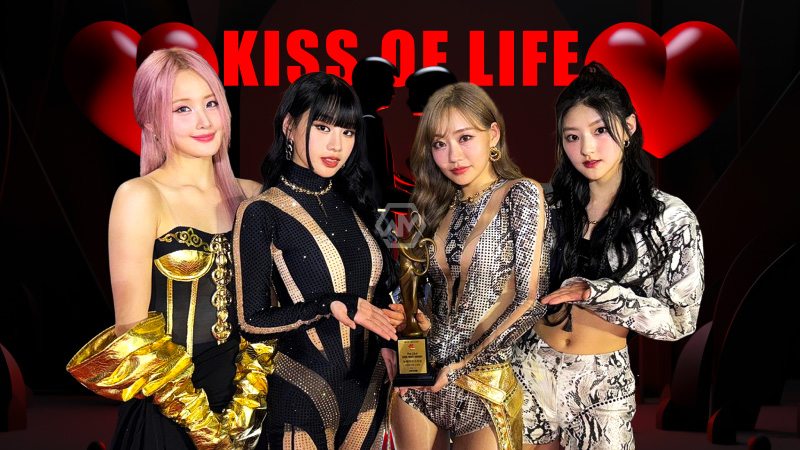- Kiss of Life’s birthday livestream sparked criticism for appropriating Black culture.
- Members wore cornrows, Bantu knots, and “old-school hip-hop” attire.
- S2 Entertainment issued an apology, promising cultural awareness.
Kiss of Life’s recent birthday livestream for member Julie has ignited controversy, with many accusing the group of cultural appropriation.
S2 Entertainment swiftly responded with an apology, stating that the intention was to celebrate hip-hop rather than offend. The agency acknowledged its oversight and assured fans that the group would exercise greater caution in the future.
Cultural Sensitivity in K-Pop: Kiss of Life’s Latest Controversy
K-pop’s global influence has grown immensely, but so have conversations about cultural appropriation. Kiss of Life’s recent controversy follows a pattern seen in the industry, where artists borrow from Black culture without fully understanding its significance. Fans have expressed disappointment, emphasizing that admiration for hip-hop should come with respect for its origins.
The backlash comes at a crucial moment for the group, as they are set to perform in Manila for their “Kiss Road” tour. While some fans accept the apology, others demand concrete actions beyond a statement. Many are calling for K-pop agencies to implement proper cultural awareness training to prevent future missteps.
Social media has played a key role in amplifying these discussions, with international fans leading the charge for accountability. Some users have compared this incident to past controversies involving other K-pop groups, questioning why such issues persist despite ongoing discourse about cultural sensitivity.
As Kiss of Life navigates their growing international presence, this controversy serves as a learning moment. Whether they take this feedback seriously and implement changes will determine how global fans perceive them moving forward.
Cultural appreciation and appropriation are fine lines in the entertainment industry. This incident underscores the need for K-pop agencies to foster a deeper understanding of the cultures they draw inspiration from, ensuring that respect is prioritized over aesthetics.
“Respect for other cultures doesn’t mean borrowing their aesthetics—it means understanding their significance.”



